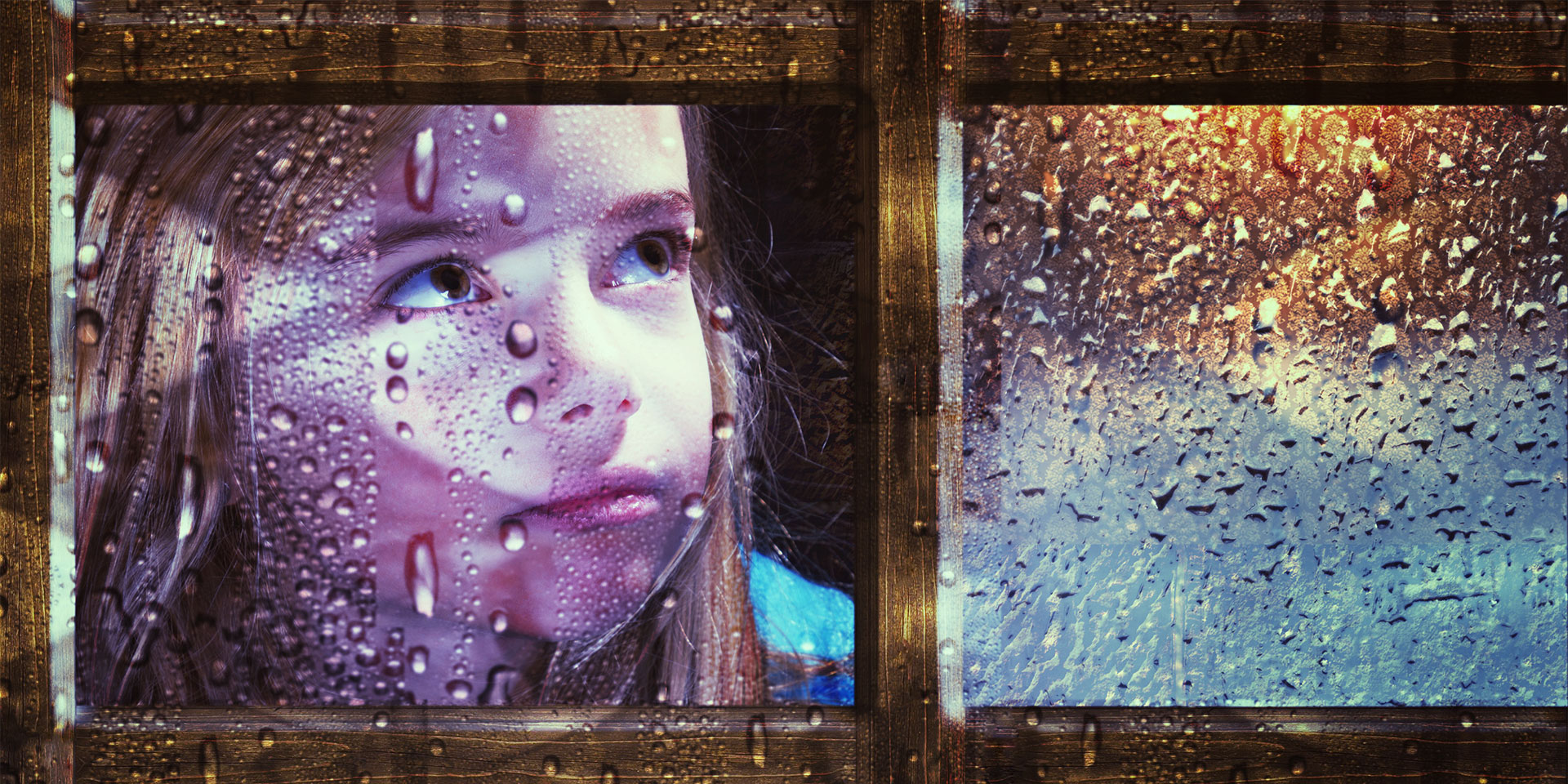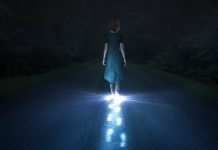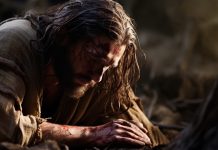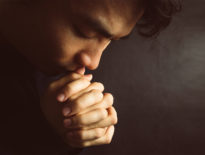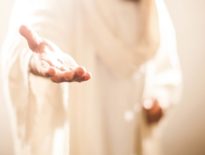In wisdom you made them all; the earth is full of your creatures – Psalm 104:24
In one of his novels, a saga which stretches over three generations, Russian writer Andreï Makine recounts bloody moments from the Soviet past in which we can see the great cogwheel of history carelessly crushing individual destinies.
Nikolai, one of the book’s heroes, returns to the almost deserted village of Dolosanka after the war. The village has been swept through by so many waves of attackers (be they soldiers of the White Army, soldiers of the Red Army, anarchists or mere bandits) that the people living there are no longer be surprised by anything. While the soldier wanders through the deserted streets of the village, an old lady naively asks whether it is true that the Bolsheviks had forbidden death. Nothing resembles the time of the hero’s youth, from before the war, and he cannot even bring himself to tell his own son (convinced someone at the Kremlin was taking care of their welfare day and night, cleverly identifying any “enemy of the people”) about the long-gone times of “happiness, freedom, carelessness”.
Harassed by activists and incapable of adapting to the times, Nikolai experiences his only moments of joy when he is surrounded by his family: his older son, the baby in the cradle, his wife, Anna. The threat prowls around, everywhere. Still, at times, the chaotic reality fades for a few moments in the calm of his simple hut, where the child is asleep, the fire burns in the stove and the light of dawn creeps through the spaces of the ice-glazed window. All the empty speeches that talk of happiness but reek of hatred, all the fear of not playing the part of the new man well enough, all the torments of worry for the future, melt away in those minutes of infinite peace, in which the only thing life needs in order to carry on are those “moments of winter twilight, in a room protected by the silence of the woman bent over the sleeping girl”.
We can empathize with the suffering of those we haven’t met, even though they lived in a very different social, cultural or political context to ours, because the feelings of uncertainty, fear or pain are familiar to us. We each have our own “hut” where we seek refuge every time bad news threatens to break the fragile world in which we live.
Wherever there is pain, questions are born. People want to know why bad things happen (and especially why they happen to them). They try to reconcile the image of a good God with that of a world full of suffering. They try to reckon with Him because He is the architect of a world they cannot comprehend, or they turn their backs on Him because they do not receive the answers they need. In this struggle to process evil, it can be hard to find the willingness to notice the beauty that places its signature on every grain of creation, as is the case with Makine’s character.
The wonder contained in a single finger
Meeting orthopaedic surgeon Paul Brand deeply touched the writer Philip Yancey during a troubled period of his youth, during which doubts assailed his faith already weakened by the books he had immersed himself in, from existentialist novels to testimonies about the Holocaust and the Soviet Gulag. To Yancey, the world seemed a totally unfriendly place, but the time he spent with Brand, interviewing him or preparing book projects together, changed his perspective.
Brand had lived a third of his life in England, India and the US, treating patients suffering from leprosy. He was renowned in the global medical community. He received numerous honors and many surgical procedures carried his name. Of course, he could have had a prestigious career, and his name could have been written in many medical treaties, says Yancey, but he chose to treat lepers, to host them in his house and even touch them, at a time when doctors were far too scared of leprosy to examine lepers except from a safe distance. He learned how to transfer the patients’ tendons and muscles, how to rebuild a nose eaten away by leprosy, or how to help the sick regain their ability to blink. And, together with his wife, an eye doctor, Brand made the “God living inside them” visible, in the words of a leper from India.
Living among disfigured and stigmatized sick people, Dr Brand could have looked at life through the deformed lens of suffering, but he learned to recognize the presence of good in the most unpleasant experiences. He had learned in college that the human body is a crucible for miracles and, confused by the suffering he had been confronted with as a young man, he finally discovered that the things patients complained about were usually their most faithful allies. He thus came to regard pain as a valuable gift, which signals the existence of other problems which would otherwise remain imperceptible. Pain is not important only for a leper, says Brand—heart attacks, concussions, or acute appendicitis would happen without warning if they were not preceded by pain. In the same way, fever, vomiting, coughing, swelling, and other reactions of the body generally regarded with fear and disgust “represent as many reasons to be grateful” because “they prove, in principle, a reflex of recovery”, the doctor said.
“I have come to understand that I perceived the great human problems from the perspective of a mathematical pattern: GDP percentages, medium annual income, the morality rate, the number of doctors per 1,000 inhabitants”, says Yancey, pointing out that these encounters helped him understand that love has nothing to do with mathematics, not even when it comes to the number of people you help. Instead, love means treating each person you meet like a “unique receptacle of God’s love”, like a being from which the image of the Divinity cannot be erased, not even by a disease as hideous as leprosy.
Yancey admits that he used to relate to God like he would to a public servant in a complaints office—complaining about illnesses, injustices, or disasters while remaining blind to the crumbs of grace to be found. Conversely, Brand chose to be grateful for all the miracles he encountered, and had learned to leave the incomprehensible matters of the world in the hands of Him who had created it in the first place.
Brand would answer difficult questions (“How can a good God allow the existence of such a flawed world?”) by pointing at the amazing way in which the world, and especially the human body, is built: for example, out of 24,000 bacteria, only a few are harmful. What is intriguing about genetic mutations is not their presence, but the fact that most of us are shielded from them due to the complexity of the biochemical processes involved in the birth of a healthy baby.
For Brand, the human hand is a real work of art. He spent much time in the library studying the records of thousands of surgical procedures for the mending of a deformed hand. However, he did not know of a single one that could have improved the functionality of a normal hand. Even using the best materials to create artificial joints could not prevent them from generating 5 times more friction than natural ones. These observations led Brand to the same conclusion a famous mathematician had reached two and half centuries before: “I performed surgery on thousands of hands in my life and I could not agree more with Isaac Newton who said that ‘In the absence of any proof, the thumb alone would confirm God’s existence.’”
In the beginning was the good
Is there at least one “logical, necessary or even practical reason” why the sunrise should fascinate us with its colours, or a sprig of mint should thrill us with its unmistakable fragrance?
Is there a reason why, although we could survive on just 3-4 types of fruits and as many vegetables and grains, we can enjoy hundreds of varieties, while the nutrients are packed into as many flavours, textures and tastes, completely unnecessary for natural selection? These are questions author Clifford Goldstein formulates in one of his books, a comprehensive account of why human life must be more than “a sad and painful package of protein metabolism.” Nature’s fierce beauty, “when it needn’t be so”, can send messages of hope from the heavens down to an earth only seemingly forgotten by the Hand who created it.
And, at times, it did send these messages, in circumstances too dark to easily detect the remnants of the world’s beauty, notes Austrian psychiatrist Victor Frankl. After an exhausting day in one of the Nazi concentration camps, a few prisoners in a boat admired, at the urging of a fellow sufferer, the splendour of a sunset. The sight brought forth such a strange exclamation from a group of skeletal people, living in terrible conditions from one day to the next: “At last, after a telling silence, we said to each other: ‘How beautiful the world can be!’”
The world’s misery and injustice can easily overshadow its beauty, and those who suffer sometimes give up their attempt to reconcile the pain they feel with the image of a God who is altogether good, loving and almighty.
Despite all this, writes Goldstein, we should notice that the good came first, not evil, which then followed it like “an apostasy from the postulate, a paralogism from the axiom”. If we analyze a rotten peach, we know that the peach came first, because the adjective would make no sense without the noun. In the same way, “There can be no sexual disease without, first… what? Sex. And, behind the abused child exists only the child. Like cracks in the Pietà, or the blotch on a banana, these modifiers (diseased, rotted, abused, cracked, blotched) are secondary, accidents, after-the-fact intrusions, that are after the fact. The fact itself, as pure fact, is good.”
Suffering, the Gordian knot we so frequently struggle to untie, is mentioned in the Bible for the first time in Genesis, right after man’s disobedience. Before this episode, everything that had come out of God’s hand was very good, according to His evaluation.
In fact, suffering and death are proof that created beings need their Creator, “a terrible demonstration that only He is good and gives us life”, says Swedish pastor Roland de Pury, known for the help he offered to Jews during the Second World War.
When humans do not work in cooperation with the One who moulded them with His own hands, “without this harmony, the smooth running of the world is momentarily compromised”, says professor Georges Stéveny. The creature’s declaration of independence thwarted the good plans designed by his Creator for him, plunging the created world into suffering—but the architect also suffers.
Love cannot constrain
Love is always a risky business, says Pastor David Asscherick, in a book which analyses the reasons why our world came to be steeped in suffering. According to the Bible, God is not only loving, He is love. Love is thus the reason why He chose to create other beings, because authentic love focuses on others. It cannot exist if there is no one to love, but needs someone to give itself to, the author says.
Still, there is no such thing as risk-free love, not even for God. In order to deserve its name, love must be free, so God created free beings who would not be constrained to love Him or listen to Him, although they had every reason to do it. God did not promote evil, but He could not love nor did He want to be loved in any other way than by free choice, which implied a risk. The risk was for evil to appear, affecting Him worst of all.
God cannot be blamed for the appearance of evil, because He created perfect angels and humans. If Superman were a real person, he would have the power to help more than anybody else, but he could, at the same time, do just as much evil, should he choose to change camps. “A creature’s best material is given by how good he can be if he goes in the right direction, but also, how bad he can become if he goes in the wrong direction,” says Asscherick, starting from C.S. Lewis’ affirmation: “If a thing is free to be good it is also free to be bad…as bad as possible.”
God did not create the devil, He created an angel, perfect in beauty and wisdom. Lucifer ultimately made a devil of himself by his choice to rebel. His rebellion generated a war in heaven, and man’s disobedience moved this war’s battleground to earth. But this was not to be forever, because, once evil appeared in the universe, God made a way to annihilate its power, and a way to reveal Himself in a manner which would prove, more strongly than ever before, that He is love.
The crucified
The image of a God who became human, to die in the place of His rebellious sons, is an image which must have silenced the entire universe, revealing new depths of a goodness the universe thought it already knew. Only when God became one of us, a poor carpenter from Galilee, taking upon Him our ragged clothes, could we see His glory and give meaning to suffering, but also catch a glimpse of its end, author John Ortberg writes.
The cross was an immense price God agreed to pay “for the joy set before Him” (Hebrews 12:2), that of saving us from this bloody war, in which we are more than mere participants—we are the prize.
On the cross, “the One on which everything stands” was crushed by the agony of a world that came out perfectly in His hands, says Goldstein, pointing out how hard it is to imagine this choice: “If ascending from zero to one takes an infinite step, what’s the moral calculus of descending from the infinite to the finite? That God Himself would become a human, that the infinite would assume finitude (while still remaining infinite), that’s incredible enough. But that God would, in the form of finitude, suffer only as the infinite could suffer?”
On him was placed “the iniquity of us all” (Isaiah 53:6). And this means that, while no man has suffered more than he could take, on the cross, all the sins, pain and suffering of the world fell upon Christ, “from the pain of the children mutilated and then murdered by Mengele, to even Herr Doktor’s personal tremors of guilt”—and all these, summed up, killed Him, Goldstein says.
There is an old illustration of a man telling his friend about a series of misfortunes someone he knew had gone through, Ortberg says. The young man in question had lost his job, his house, his money and, eventually, his fiancé. “It could have been much worse” murmured the listener, clarifying what the far more sombre scenario would have been: “It could have happened to me.”
Although far from being the best world possible, living in our world is still the only way to get to the best world promised by Jesus “to all who have longed for his appearing” (2 Timothy 4:8). And this future, in which harmony and good will be restored, was possible thanks to the most unfair exchange in history, whose grace also dawned upon the thief on the cross during his last hours of life.
“This man has done nothing wrong”, concluded the criminal, admitting at the same time that they were “getting what our deeds deserve”. The unmerited exchange caused the death of the One who was never supposed to die, and life to His rebellious sons, because He had chosen to take the worst things of the world upon Himself.
Carmen Lăiu is a writer for ST Network and Semnele timpului.












